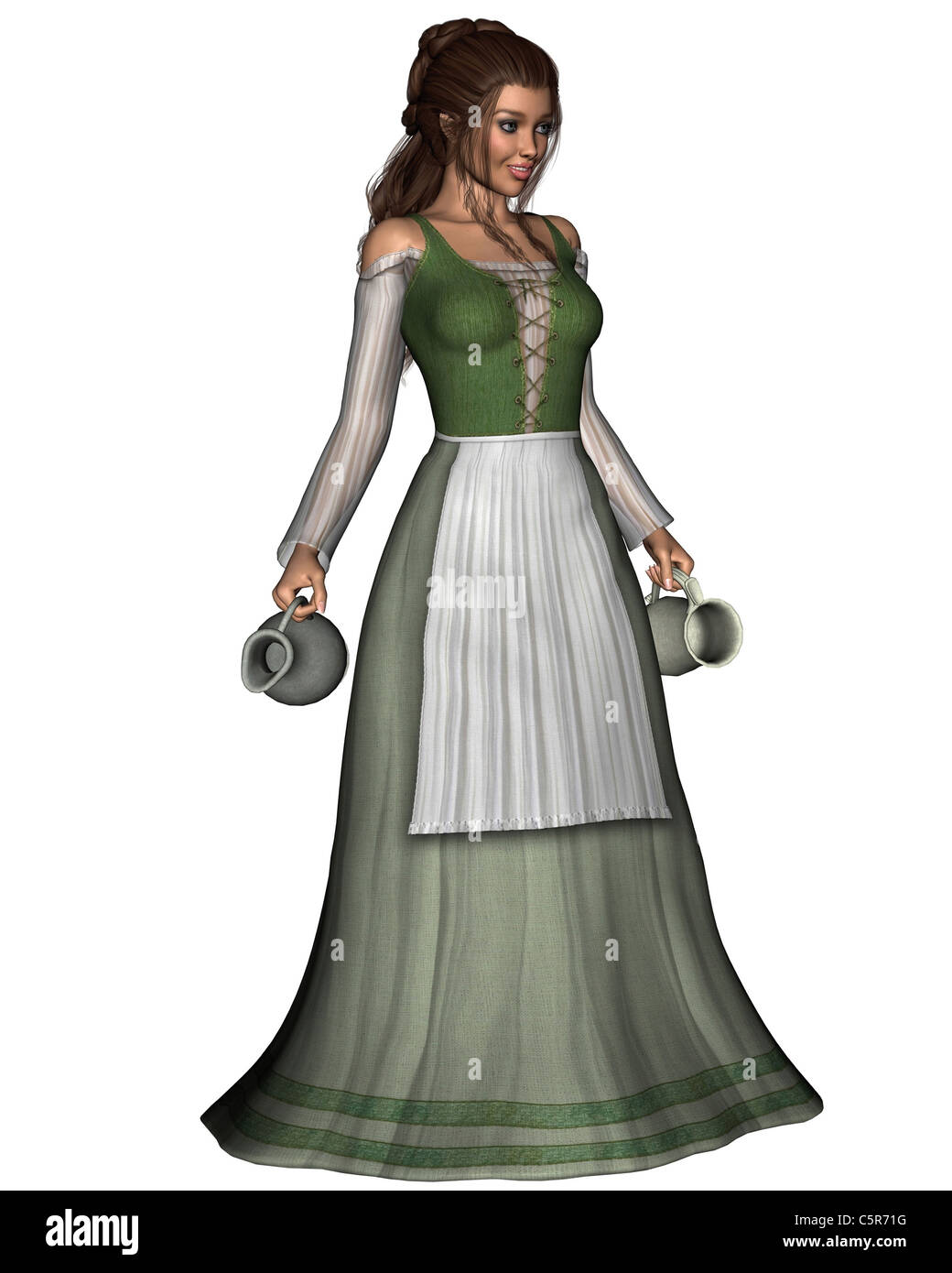What does the word "wench" truly signify, and why does it carry such a complex and often troubling legacy? The term, once simply denoting a young woman, has evolved into a linguistic minefield, burdened with historical baggage of misogyny, racism, and dehumanization, making it a potent symbol of social stratification and cultural bias.
Historically, the evolution of "wench" is a microcosm of societal shifts and prejudices. Born around 1290 A.D. as a neutral descriptor for a young woman, the word gradually acquired a negative connotation by the 14th century, becoming slang for a woman of questionable repute. This transformation reflects the evolving societal views of women and their roles. Later, the term gained yet another layer, uniquely in American usage, to refer to a "colored woman of any age; a negress or mulattress, especially one in service" as recorded in 1832. This specific application underscores the intersection of gender and race, highlighting how the word was weaponized to demean and control women of color.
The pervasiveness of this term is quite evident. It can be found in medieval texts, where the "negro wench" is intentionally contrasted with the "southern lady," creating a stark status differential. In modern contexts, the use of "wench" can instantly racialize and dehumanize the woman targeted, downplaying any acts of violence against them. Even esteemed literary figures like William Shakespeare employed the word, further embedding it into the cultural lexicon, which is clearly visible in "All's Well That Ends Well" or in the poems written by Sir Philip Sidney, where the word is used, although not in a medieval context.
- Unveiling The Whippoorwill Secrets Of The Elusive Night Bird
- Mini Dachshund Puppies Colors Care More Find Yours Today
Given the multifaceted nature of "wench", its meaning is not just about the past. To delve more deeply, consider the following data which encompasses several facets of the topic at hand:
| Aspect | Details | Notes |
|---|---|---|
| Origin | Around 1290 A.D. | Initially a neutral term for a young woman. |
| Evolution (14th Century) | Degenerated into slang for a girl of ill repute. | Reflects changing societal perceptions of women. |
| American Usage (1832) | "A colored woman of any age; A negress or mulattress, especially one in service." | Highlights the intersection of race and gender. |
| Literary Usage | Used by Shakespeare ("All's Well That Ends Well") and Sir Philip Sidney. | Further entrenched the term in the cultural lexicon. |
| Modern Connotations | Negative, often associated with misogyny and racism. | Highlights its complex and problematic legacy. |
| Associated Ideas | Medieval taverns, renaissance festivals, peasant attire | Places in medieval society where it was commonly used |
For an in-depth understanding, explore the term's historical context on resources like the Oxford English Dictionary.
The term's significance is also evident in examining the context of specific historical or cultural events. For instance, the 28th annual Arizona Renaissance Festival, which opened on Saturday, February 6th, near Apache Junction, showcased the term, with "wenches" taking on roles that are both entertaining and, in some cases, central to the festival's operations. This duality reflects the ongoing debate over the term, its association with historical costuming, and the potential for both entertainment and the problematic re-enactment of past biases.
- Dr Babasaheb Ambedkar Airport Nag Your Nagpur Travel Guide
- Auschwitz Aerial Photos The Holocaust Unseen Images
In exploring the realm of historical fashion, the "wench dress" becomes a tangible representation of the word's complexity. These costumes, popular at renaissance fairs and themed events, invite participants to step back in time. These dresses often are handmade, aiming to replicate a specific period. There are a lot of options available in the market: whether it's a Kranchungel renaissance dress, a pirate peasant wench costume, or a medieval boho chemise faire gown, or a bavarian bar maid costume. These are available for sale through various platforms. This creates a contrast: a creative outlet versus the history the garment represents.
The presence of "wenches" in such environments underscores the multi-layered aspects of the term and how it continues to resonate. It has a presence in the local drinking tavern is the most important establishment in any medieval village. It is where almost everyone stops by for a drink, to share information, to find work, and to find companions who are.
Consider the legal and social implications of the term, such as in the lens of Dobbs vs. Jackson Women's Health Organization. The decision of the Supreme Court and future of medieval 'wench' reflects the complex societal issues that the term touches. This also shows how the concepts embody the wench are central to the supreme court's decision, and it looks ahead to the potential futures that the medieval wench embodies.
The online presence, such as "Washing Well Wenches" and the Tudor Shoppe, demonstrates how the term is used today. This includes live streams, parody videos, and merchandise. Visit www.tudorshoppe.com to find apparel. They are part of the conversation.
It becomes vital to appreciate the complete history of the word and its multiple significations. Only then can we navigate this loaded linguistic landscape.



Detail Author:
- Name : Harry Lynch
- Username : akoss
- Email : juwan.aufderhar@yahoo.com
- Birthdate : 1986-01-15
- Address : 297 Kaia Manors Suite 015 Lake Elenor, CA 24412
- Phone : +19472605277
- Company : Hills, Mraz and Rosenbaum
- Job : Fraud Investigator
- Bio : Ea quasi laborum vel est aut. Qui praesentium quibusdam autem quae ea labore. Eum dolorem soluta rem laudantium.
Socials
facebook:
- url : https://facebook.com/dewayne_dev
- username : dewayne_dev
- bio : Quia unde repellendus vero ab dolorem adipisci. Magnam id iste ullam ullam ut.
- followers : 1890
- following : 2851
twitter:
- url : https://twitter.com/dewaynebatz
- username : dewaynebatz
- bio : Qui voluptas temporibus et quibusdam voluptas hic quas. Qui est dolorem a non in. Et dolor sit est. Iure harum atque ut.
- followers : 4809
- following : 1941
tiktok:
- url : https://tiktok.com/@dewayne8294
- username : dewayne8294
- bio : Quidem deleniti debitis quos voluptas est.
- followers : 2608
- following : 2757
linkedin:
- url : https://linkedin.com/in/dewayne.batz
- username : dewayne.batz
- bio : Autem unde eum quasi delectus voluptas.
- followers : 6801
- following : 567
instagram:
- url : https://instagram.com/batz1970
- username : batz1970
- bio : Quae quis nihil non cumque culpa. Nostrum doloribus exercitationem occaecati numquam deleniti.
- followers : 5159
- following : 1156